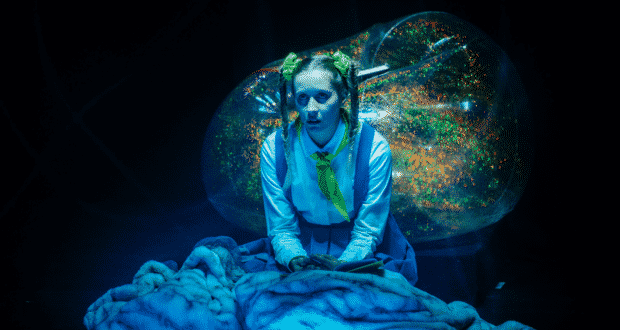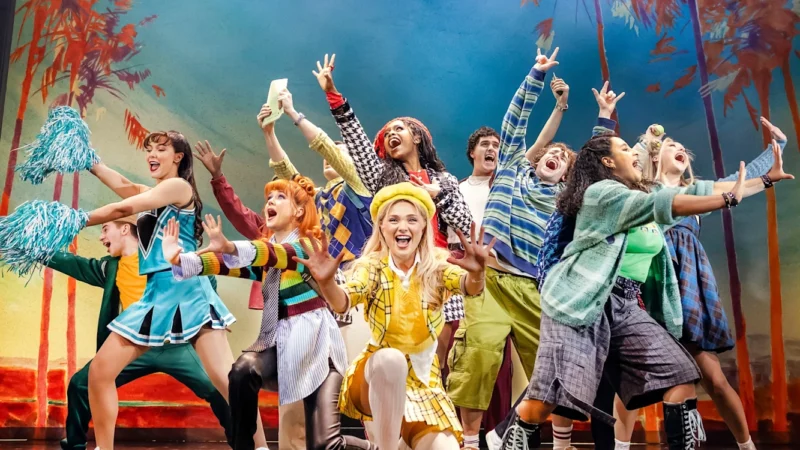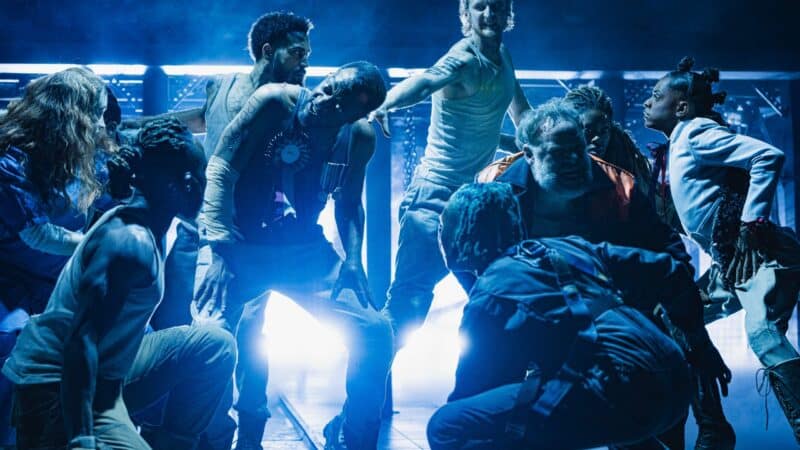Stone Nest
Edyta Budnik kicks things off playing a modern-day Alice in wonderland. The similarities to Lewis Carol’s novel don’t end there; the bird people, dressed in Anna Smirnova’s staggering Comme Des Garçons-Esque costumes haunt the child. Looking a little like swans on their way to a rave, they inexplicably explode into unconnected but ethereal operatic numbers. Alexey Nadzharov accompanies with industrial clattering sound effects high up on a balcony, a highlight of the piece.
A large gauze covers the arches and roof space of the church and projections three floors high deepen the musical numbers. Visually it’s a very pleasing effect.
But Dulerayn’s writing is repetitive and flat, rehashing the same concepts; diminishing magic in the world, the gifted loner, head versus heart, so unimaginatively that we grow numb to them. Her directing also means that the costumes and sung sections are trotted out in such predictable formula that we anticipate and therefore disconnect from them.
The second act is a more heavily surrealist affair incorporating more videography work. Lucienne Deschamps as the now older woman breathes a fragile believability into the stilted script. Gone are the bird people, and in their place are creatures with torches for eyes, crisscrossed with more projected video work. This is certainly more varied with sections in Russian, overlaying, and a wide range of themes explored. We have an attempt at philosophical wrangling, emotional naturalism in mini filmed vignettes, and dance, all tied together by some nice videography by Maksym Demydenko. Deschamps battles with her dictatorial therapist tries to poison a neighbour and escapes to a paradise of sorts. Masha Yukhananov’s projection is slightly dated, but there is artistry and imagination there.
Despite the second act’s surprise upturn, it is still an hour and half long, making the whole thing almost three hours long. This is pushing it for any art form. Join that with the piece’s repetition and you have a feeling similar to sinking in a pool of molasses. The themes discussed are interesting, but the approach is pedestrian. The distrust of mental health professionals and psychopharmacology is a little worrying and the idea of imagination over science is poorly explored. Although beautiful at times, with projections dancing over the worn pillars, this project is perhaps another that falls prey to the issue of not enough creatives involved. Some hefty snips could turn this rather glacial Waltz into a spirited Mazurka.
Written, directed and produced by: Inna Dulerayn



